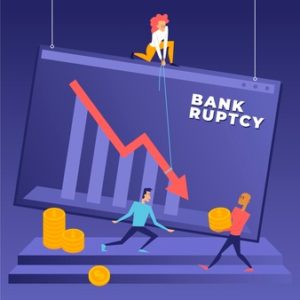Bankruptcy laws provide specific information on the different types of bankruptcy. Among others, there is personal bankruptcy, consumer bankruptcy, and business bankruptcy. If you find yourself having trouble with debt-settlement or if you know you won’t be able to repay a creditor with what you owe, you may want to file for bankruptcy.
People considering bankruptcy should at least have an idea of the bankruptcy process. Credit counseling or a chat with a bankruptcy attorney can help with general bankruptcy information and details. This article will help you know if filing for bankruptcy is the best option for you.
- Should I declare bankruptcy or just do nothing?
For people who can’t pay-back and wipe-out their debt, only doing nothing is worse than choosing to declare bankruptcy. It’s going out during a storm without an umbrella. If you have not filed for bankruptcy yet, you can be harassed by creditors or debt collection agencies. You may find yourself sued or dealing with a lawsuit with your assets or equity unprotected.
- Is debt consolidation better than bankruptcy filing?
 Bankruptcy filings are not done overnight. People ask if it’s better to file bankruptcy or opt for debt consolidation.
Bankruptcy filings are not done overnight. People ask if it’s better to file bankruptcy or opt for debt consolidation.
Compare monthly payments vis-a-vis Chapter 13 bankruptcy cases. If borrowers have lower monthly payments in five years, then debt consolidation might be the right choice. Consider the time you need to pay off what you owed because this also applies if you will not qualify for Chapter 13 bankruptcy, likely because of the debt limit for unsecured and secured debt.
Most opt for Chapter 7 type of bankruptcy because it allows for a fresh start in a much shorter time. However, if filing bankruptcy will have unwelcome consequences, you may want to look into debt consolidation. Experienced bankruptcy attorneys can help explain this further.
- I decided to file for bankruptcy. Should I file Chapter 13?
There are two types of bankruptcy. Following the bankruptcy code, Chapter 13 runs for usually five years, roughly similar or longer compared to debt consolidation. With this, you are protected from creditors while you settle the outstanding debt following a repayment plan. Some call it as home-saver bankruptcy because, aside from debt-relief, it can prevent home foreclosure. The need for bankruptcy protection concerning debtors is also something you need to know.
The bankruptcy court can reduce the total amount to be repaid to certain creditors, depending on the debts incurred. Note, however, that once payment agreed upon is received, the debt will be considered fully-paid. However, you will have a low credit rating throughout Chapter 13, following the bankruptcy law.
- What if I file a Chapter 7?
Chapter 7 bankruptcies are often less complicated and expensive. Think about unpaid debt from your lenders. With experienced bankruptcy attorneys, your unsecured debt may be wiped clean in around three months.
If you filed for bankruptcy under Chapter 13, repayment of your full disposable monthly income is required. In contrast, a Chapter 7 case in the form of bankruptcy known as “fresh start” or even “clean slate” bankruptcy is a better choice for some because it can allow you to get out of your debts without repaying the unsecured debt to creditors. Furthermore, although it will require you to turn over all your non-exempt assets, there is a way to keep your property. A knowledgeable bankruptcy lawyer can help make sure that most, if not all, your assets are considered exempt.
Lastly, in this bankruptcy type, it is the court who decides if assets must be sold to pay back your creditors. A bankruptcy law firm experienced in handling different cases can help you prepare documents that must be filed. Bankruptcy forms and paperwork must be accomplished very carefully or you risk dismissal of your case.
If you are considering bankruptcy and you more information on how to get started, call us now at Northwest Debt Relief Law Firm for a free initial consultation.











